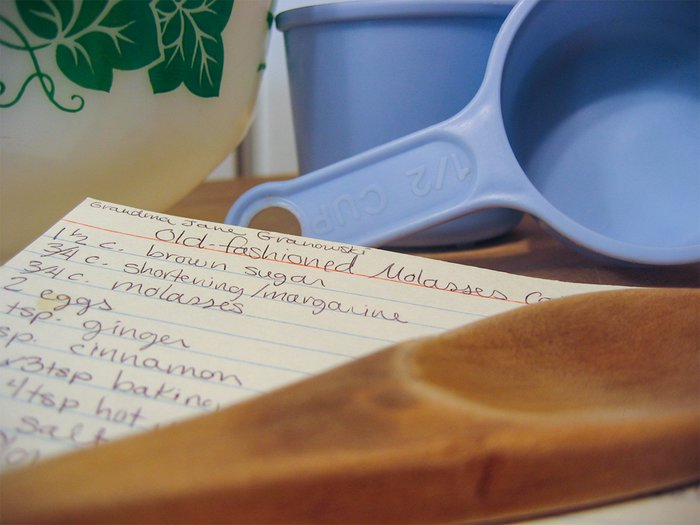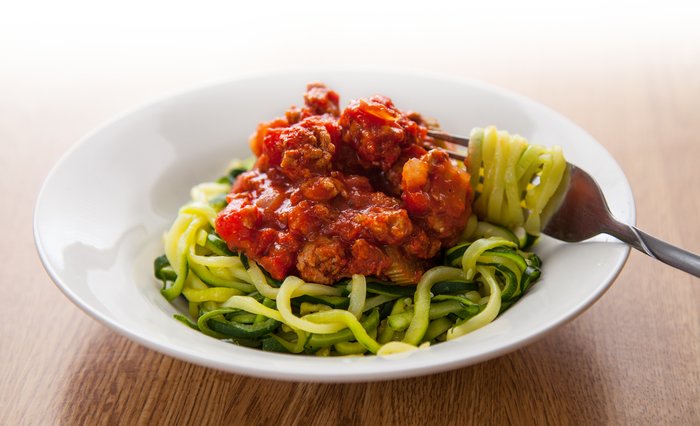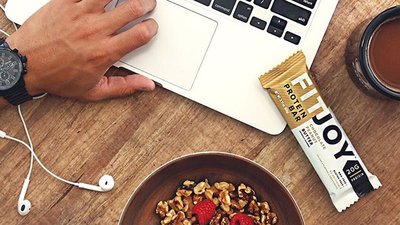Living the fit life is about feeling good, right? You willingly subject yourself to hardships on a small scale, knowing that it's paying off with more energy, a better quality of life, and more fun.
If only it felt that way! For nutrition in particular, high hopes and ambitious macros can often leave you feeling seriously low. The stricter you are, the more likely you are to find yourself dreading a meal—or a whole week of them—on occasion.
When it happens, the answer isn't to tough it out or double down on the misery. This is the time to look for small tweaks that allow you to put the joy back in your diet! Here are five of my favorite techniques.
1. Take A Break From Dieting
Dieting—which I am defining as intentionally eat fewer calories than your burn—is a major mental and physical stressor. Hunger and fatigue seem to be ever-present, and the longer you've been in a deficit, the bigger the struggle can be. Good luck enjoying anything—especially tiny portions—with the constant urge to want to eat a horse.
If you're the type who knows your numbers off the top of your head, give yourself a vacation from this focus on fat loss, and spend at least a few weeks eating at maintenance. This means increasing your daily calories to the level where you burn and eat roughly the same amount of calories.
Doing this regularly will ensure your mind and body are receiving ample fuel. It might also mean your workouts will suddenly start feeling a whole lot better. After a few weeks, you can dip back down into your deficit feeling renewed and ready.

Take a break from dieting. Your mind and body will thank you.
2. Hit the Pause Button on Tracking
It's 10 o'clock at night, and you still need 36 grams of protein, 14 grams of carbs, and 19 grams of fat to meet your daily macros. By 10:20 p.m., you're still playing with your tracking app, trying to decide between an extra quarter cup of oats or a tablespoon more of peanut butter. Honestly, you're not hungry for either. But finally, you arrive at the perfect portion size for each food to meet your daily macros.
Were those 30 minutes really worth it? If it means you're up stressing when you should be sleeping, I would argue that it probably wasn't.
Consistently tracking and appropriately portioning your meals is an invaluable tool to help you progress in the right direction. However, it can also quickly lead to you only see numbers rather than food. Sometimes, this can be just what you need to hit an ambitious goal. Other times, it's enough to suck all enjoyment out of eating.
The alternative doesn't have to mean approaching each meal with a "free pass" mentality. You can still keep portions in check by following the rules I outlined in the article "4 Tips For Weight Loss Without Counting Macros." They were:
- Drink more calorie-free fluids.
- Stop drinking your calories.
- Use your hands to determine portion size.
- Choose nutrient-dense over calorie-dense foods.
Want to make it even simpler? Get lots of protein, veggies, and water. Only eat other things after you've gotten your fill of those three. You'll stay within arm's length of your previous numbers, stay satisfied, and not have to count a thing.
3. Try Some New recipes
You may make a killer stir-fry and out-of-this-world protein pancakes. But even meals that knock your socks off initially are bound to get old with daily or even weekly repetition.
To get yourself out of this diet rut, mix up your meals and try something new—or a whole lot of somethings! Not only will a new flavor get your taste buds dancing, you'll have more options moving forward. This is where having a little "recipe box" like your grandmother may have had can pay off big time!

A different spice, cut of meat, or source of carbs may be all it takes to put the joy back into your diet.
4. Treat Yourself Daily
Many fit people think of nutrition—and nutrition behaviors—in terms of black and white. One common example of this is the idea that if you're not eating clean, you must be "cheating."
This mindset has a couple of problems. First of all, it encourages you to eat in two speeds: totally controlled or totally out of control. And second, it cuts you off from a whole world of delicious small-portion foods.
Want to add some instant bliss to an otherwise bland day of eating? Look for tiny additions, like a single piece of chocolate as an afternoon pick-me-up or a protein bar in place of the same old shake post-workout.
One nice thing about protein bars is that they're pre-portioned, so you know what you're getting and don't even have the option of killing an entire bag's worth. Plus, a well-chosen bar will provide your taste buds and muscles with a boost of joy!
5. Pay Attention to Each Bite
In a busy world saturated with distractions, you may not even recall what you ate for breakfast. But beyond what it was, can you recall how it looked, smelled, tasted, or what was happening while you ate it? Each of these sensory details heighten the experience of the food, as well as the crucial ritual of eating. Turning your focus here can certainly help put the joy back into your diet.
So where do you start? By eliminating distractions at your meals: no TV, no computer, no smartphone. Good company is allowed, of course. Just don't let the conversation keep you from paying attention to the meal! Before taking your first bite, think about how it looks and smells, and all that went into making it. In other words, appreciate the food. Take small bites, chewing slowly and thoroughly.

To savor each bite, keep your focus on your food at meal times, not your phone, your computer, or the television.
You'll also find that this approach helps to keep portions in check, because it allows ample time for satiety signals to be released. To learn more, check out my article detailing the benefits of eating slowly.
You may think this only applies to decadent dinners, but the opposite is true. Pay attention to everything from your morning eggs to that crucial little daily treat, and you'll appreciate each of them just a little more!

